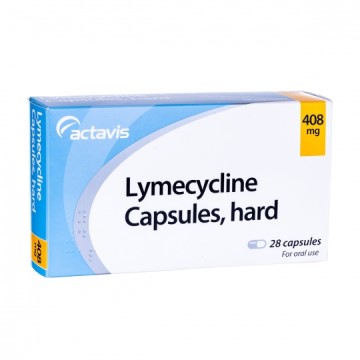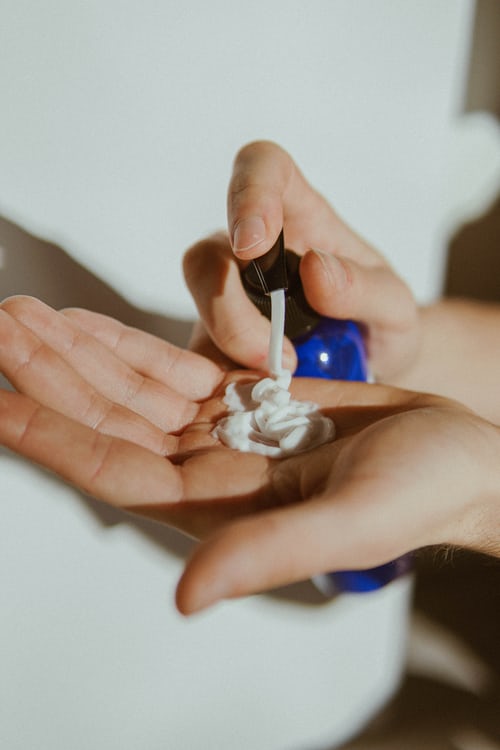
How Lymecycline tablets can help with Acne
Acne affects more than 80% of people at some point in their life, so it’s no surprise that there are such a variety of treatments to choose from.
Many have often tried several forms of treatments depending on how severe their acne is, with creams and serums mostly used for lighter spots or blackheads. For more severe or deeper breakouts, antibiotic treatments such as Lymecycline tablets can offer a more effective solution.
Whilst acne is not necessarily an infection and occurs mostly when pores are blocked with oil or dead skin, it is also caused by the presence of bacteria in pores. This means that many people find themselves using acne treatments that tackle oil and dead skin, but do not eliminate acne-causing bacteria; which can be terribly frustrating.
Thankfully, Lymecycline tablets offer effective antibiotic properties that help relieve bacterial acne at the root of its cause.
What is lymecycline?
Lymecycline capsules are an antibiotic treatment, mainly used for acne and spots. They contain the tetracycline antibiotic, which works by preventing the growth of bacterial infections that can lead to acne.
Not available for sale over the counter, you will have to get a prescription for Lymecycline. This is due to the medication’s strong antibiotic properties, which should be used only when necessary to prevent the body from developing antibiotic resistance.
What are lymecycline tablets used for?
Lymecycline tablets are most commonly used as a treatment for acne, but also offers treatment for other bacterial infections.
It is sometimes prescribed to treat bacteria-based bronchitis, pneumonia and some sexually transmitted infections. Its antibiotic properties can also be effective against tick-transmitted infections such as Rocky Mountain spotted fever. But most commonly, Lymecycline tablets are prescribed for the treatment of acne.

How does Lymecycline help acne?
For those with severe symptoms, Lymecycline tablets offer an effective treatment for acne; keeping redness, pain and inflammation under control. Those who take Lymecycline often see their acne visibly reduce as the medication begins to target and prevent acne-causing bacteria.
Taken orally, Lymecycline tablet can be particularly effective in comparison to topical treatments alone, as its antibiotic properties address acne at an often-overlooked root of the cause: bacteria. As the medication continues to fight bacterial growth, this also helps to prevent further breakouts.
Not only does Lymecycline help acne, but it can also help those suffering feel more confident in the appearance of their skin, having positive effects on overall self-esteem.
Buy Lymecycline Online
You can buy Lymecycline capsules here at Pharmacy Online, where our online pharmacist can provide you with a prescription, sent straight to your door.
To start your order, simply complete an online consultation, where you'll be asked a few simple questions about your symptoms so our pharmacists can offer the most suitable acne medication. Start a Lymecycline prescription.
How do I use Lymecycline tablets?
To ensure you are targeting your acne in the most effective way, you should take Lymecycline tablets once a day for the full course of your prescription. If you forget to take a dose of Lymecycline, then continue as soon as you remember unless your next dose is due soon.
If your next dose is due soon, simply skip the missed dose and continue with your course of medication as usual. Do not take an additional dose to make up for the missed one.
As an oral tablet, it is recommended that you take your usual dose of Lymecycline capsules with a glass of water to help the medication go down comfortably. It is recommended that you take Lymecycline at the same time every day, usually in the morning. It can be taken with or without food, but it may help prevent nausea if taken with a snack or meal.
Can I combine topical treatments with Lymecycline tablets?
You can combine topical acne treatments with Lymecycline tablets. However, you should avoid using topical antibiotics, as this can increase the chance of developing antibiotic resistance. One alternative solution is Benzoyl Peroxide, a topical acne treatment that provides antiinflammatory action against acne without developing antibiotic resistance.
Salicylic acid (2%) offers an effective non-antibiotic topical treatment to use alongside Lymecycline tablets, often found in the form of a face cleanser, cream or serum. Although Lymecycline offers an effective treatment for severe acne, you should continue to cleanse or wash your face and moisturise appropriately, ensuring your skin receives the appropriate care throughout the day.

Are Lymecycline capsules safe?
On the whole, Lymecycline is a safe medication for most people, but there are some factors to consider before taking it.
Lymecycline capsules are only suitable for adults and children over the age of 12 years old. It is not always a suitable medication for everyone and should be avoided if you have:
- Experienced a previous allergic reaction to Lymecycline or any other medication.
- Experienced kidney disease or other problems
- Have been diagnosed with liver problems
- Have Lupus (an autoimmune disease)
- If you are pregnant or breastfeeding
- Have myasthenia gravis
If you have experienced any adverse reactions to medication in the past, have any of the above conditions or other conditions, please speak to your GP for advice before taking Lymecycline.
Side effects of Lymecycline
There are several common side effects associated with Lymecycline tablets. Most of these are mild side effects, but some should be taken more seriously and reported to your GP. Potential side effects can include:
- Abdominal pain
- Nausea
- Diarrhoea
- Headaches
Serious side effects
Whilst much more rare, serious side effects of Lymecycline can include:
- Yellow skin
- Yellow eye whites
- Sun sensitivity
If you experience any of these more serious side effects, stop taking Lymecycline immediately and call a doctor for urgent assistance.
Taking Lymecycline capsules during pregnancy or breastfeeding
Lymecycline capsules are not suitable for taking alongside pregnancy or during breastfeeding. The antibiotics present in this medication are not appropriate for infants, so should be avoided during pregnancy and breastfeeding to ensure they are not exposed to Lymecycline’s antibacterial agents.
Have a question?
If you are unsure whether Lymecycline tablets are right for you, or are unsure about your acne severity and causes, our team will be happy to help. We can help advise on the most suitable treatment for you and how to take it correctly, offering a fully confidential consultation before starting any prescription.
For more serious medical concerns about your acne or acne medications, please get in touch with a GP.





